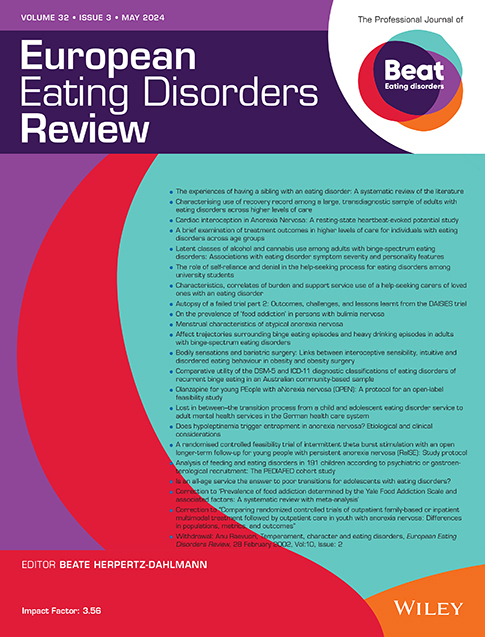Probiotic and prebiotic interventions in eating disorders: A narrative review
Abstract
Aims
The review aimed to summarise and discuss findings focused on therapeutic probiotic and prebiotic interventions in eating disorders (ED).
Methods
Using PubMed/MEDLINE, Cochrane Library, and Web of Science all published studies were retrieved until February 2023, following PRISMA guidelines. From the 111 initial studies, 5 met the inclusion criteria for this review.
Results
All studies included in this narrative review were focused on anorexia nervosa (AN). Three longitudinal, randomised, controlled trials aimed to evaluate interventions with probiotics (Lactobacillus reuteri, yoghurt with Lactobacillus, and Streptococcus) in children and adolescents. These studies primarily emphasised medical outcomes and anthropometric measures following the administration of probiotics. However, the findings yielded mixed results in terms of short-term weight gain or alterations in specific immunological parameters. With a lower level of evidence, supplementation with synbiotics (probiotic + prebiotic) has been associated with improvements in microbiota diversity and attenuation of inflammatory responses.
Conclusions
Research on probiotics and prebiotics in ED is limited, primarily focussing on anorexia nervosa (AN). Their use in AN regarding medical and anthropometric outcomes needs further confirmation and future research should be warranted to assess their impact on psychological and ED symptomatology, where there is a notable gap in the existing literature.

 求助内容:
求助内容: 应助结果提醒方式:
应助结果提醒方式:


